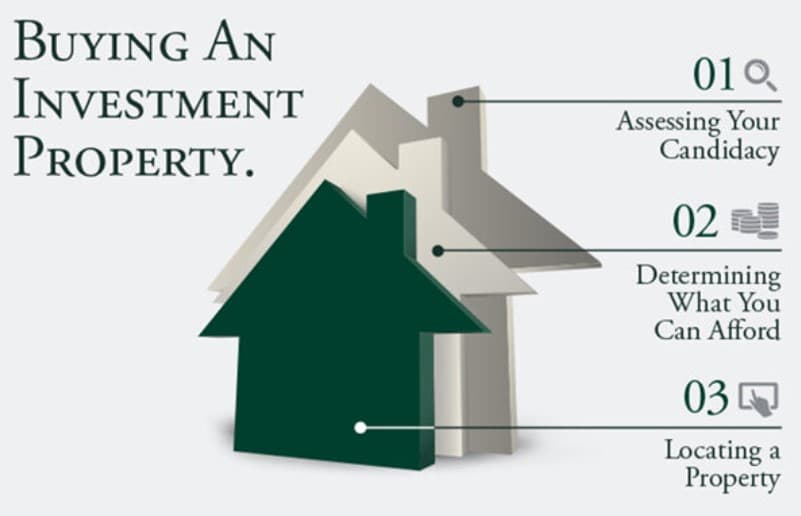Invest in real estate remains one of the most reliable ways to build wealth over time. Whether you’re a beginner or a seasoned investor,
The real estate market offers a range of opportunities, from rental properties to commercial spaces and real estate investment platforms.
However, understanding the best strategies, risks, and trends for 2024 is key to making smart investment decisions.
In this site Decor.havenblueprint.com will guide you through how to invest in real estate, explore different strategies, and reveal some of the best places to invest in 2024.
Why Invest in Real Estate?
Investing in real estate has long been considered a smart and stable way to build wealth, offering a range of benefits.
One key advantage is the potential for long-term appreciation, where the value of properties increases over time, providing investors with a solid return on investment. Additionally, real estate can generate passive income through rental properties, creating a steady cash flow.
Real estate has long been considered a stable investment because it provides multiple benefits:
- Consistent Cash Flow: Rental properties generate monthly income, which can help investors cover mortgage payments or reinvest in more properties. This steady income stream makes real estate an attractive option for those looking for long-term wealth creation.
- Appreciation Potential: Real estate tends to appreciate over time, meaning the value of your property is likely to increase. This allows investors to sell their properties at a higher price in the future, providing capital gains.
- Tax Advantages: Real estate investors can take advantage of numerous tax benefits, such as deductions for mortgage interest, property depreciation, and repair costs.
- Diversification: Investing in real estate diversifies your portfolio, spreading out risk and potentially safeguarding your finances against market volatility.
You can also read : Top Real Estate Investment Companies: Grow Your Portfolio Today
Different Invest in Real Estate Strategies

Buy-and-Hold Strategy
The buy-and-hold strategy involves purchasing a property and holding it over the long term to take advantage of appreciation while earning rental income.
This is one of the most popular real estate investment strategies, especially for those looking to build wealth gradually.
Investors can either rent out the property to tenants or wait for the property to appreciate in value before selling it. The buy-and-hold strategy offers several advantages for real estate investors.
By holding a property over the long term, investors can benefit from passive income through rent, which can cover mortgage payments and provide additional cash flow.
Over time, the property’s value may appreciate due to market growth or improvements in the area, allowing for substantial profits when it’s eventually sold.
This strategy also provides tax benefits, such as depreciation deductions and the ability to defer capital gains taxes through a 1031 exchange.
Additionally, buy-and-hold investments can act as a hedge against inflation, as rental income and property values typically rise in line with inflation, protecting the investor’s purchasing power.
Benefits:
- Steady cash flow through rental income
- Long-term appreciation in property value
- Tax benefits from property ownership
Where to Start: You can find buy-and-hold investment opportunities on platforms like Roofstock or Zillow.
Fix-and-Flip Strategy
In a fix-and-flip strategy, investors purchase undervalued or distressed properties, renovate them, and then sell them for a profit.
This approach requires a solid understanding of renovation costs, market conditions, and property values. It’s a great strategy for those with experience in home repairs or property development.
A key advantage of the fix-and-flip strategy is the potential for quick returns, as the turnaround time between purchase and sale can be relatively short, depending on the scope of the renovations.
Investors often target properties in up-and-coming neighborhoods where demand is growing, ensuring a better chance of selling at a higher price after improvements.
Benefits:
- Quick returns on investment compared to buy-and-hold strategies
- Opportunity to improve property value through renovations
- High-profit potential in hot markets
Where to Start: Explore fix-and-flip opportunities at Auction.com or Fundrise.
Invest in Real Estate Trusts (REITs)
For those who want to invest in real estate without owning physical property, Real Estate Investment Trusts (REITs) offer a great alternative.
REITs are companies that own, operate, or finance real estate properties, and they allow investors to buy shares of income-generating real estate portfolios.
Investing in REITs provides several benefits, including liquidity and diversification. Unlike traditional real estate investments, which can be illiquid and require substantial capital upfront.
REIT shares can be easily bought and sold on major stock exchanges, making them a more flexible investment option.
Additionally, REITs typically distribute a significant portion of their income as dividends, offering investors a potential source of regular income.
With various types of REITs available—such as residential, commercial, industrial, and healthcare—investors can choose to align their portfolios with specific sectors that interest them.
By investing in REITs, individuals can gain exposure to the real estate market while minimizing risks associated with direct property ownership, making it an attractive option for both seasoned investors and those new to real estate.
Benefits:
- Lower entry cost than purchasing physical property
- Highly liquid compared to direct real estate investments
- Diversification across different property types
Where to Start: You can invest in REITs through platforms like Public or M1 Finance.
You can also read : Property Investment for Beginners: Simple Steps to Get Started
Best Places to Invest in Real Estate in 2024
Austin, Texas
Austin continues to be a top real estate market in 2024 due to its booming tech industry, strong job growth, and high demand for housing.
The city’s population growth has made it a prime location for both buy-and-hold investors and those looking for short-term rental opportunities.
Austin, Texas remains one of the hottest real estate markets in 2024, fueled by a thriving tech industry, robust job growth, and increasing demand for housing.
The city’s rapid population growth creates ideal conditions for both buy-and-hold investors and short-term rental opportunities.
With a vibrant economy and strong housing market, Austin offers a lucrative investment landscape for those seeking long-term value in real estate.
Pros:
- High rental demand due to population and job growth
- Strong appreciation potential
- Thriving short-term rental market
Cons:
- Competitive market with rising property prices
- Need for thorough market research to find good deals
Average Home Price: $550,000
Where to Invest: Look for opportunities in platforms like Realtor.com.
Raleigh, North Carolina

Raleigh is another fast-growing market in 2024, offering excellent investment opportunities, especially in single-family homes and multi-family properties.
With a strong local economy and affordable property prices compared to national averages, Raleigh is a solid option for long-term investors.
Raleigh, North Carolina, is rapidly emerging as a fast-growing market in 2024, presenting excellent investment opportunities, particularly in single-family homes and multi-family properties.
With a robust local economy supported by diverse industries, Raleigh boasts affordable property prices compared to national averages, making it an attractive choice for long-term investors.
The city’s appealing quality of life, coupled with a steady influx of new residents, further enhances its real estate potential.
Whether you’re looking to expand your investment portfolio or find a new home, Raleigh stands out as a solid option for those seeking growth and stability in the real estate market.
Pros:
- Affordable housing market with room for appreciation
- Strong economy with tech and healthcare industries
- Family-friendly, making it a great market for rental properties
Cons:
- Slower growth in luxury real estate
- Requires careful neighborhood selection for optimal returns
Average Home Price: $435,000
Where to Invest: Look for investment properties on Roofstock.
Orlando, Florida
Orlando’s real estate market is booming due to its strong tourism industry and rapidly growing population. Investors can benefit from high demand for both long-term rentals and vacation properties.
Orlando’s short-term rental market, driven by attractions like Disney World, makes it an excellent choice for those interested in vacation rentals.
Orlando, Florida, is experiencing a booming real estate market, driven by its thriving tourism industry and rapidly growing population.
With a high demand for both long-term rentals and vacation properties, investors have ample opportunities to capitalize on the city’s growth.
Orlando’s short-term rental market, fueled by world-renowned attractions like Disney World, makes it an ideal location for those interested in vacation rentals.
Whether you’re looking for a long-term investment or a property catering to tourists, Orlando offers a lucrative market with great potential.
Pros:
- High demand for vacation and short-term rentals
- Population growth and tourism drive consistent demand
- Strong appreciation potential in rental properties
Cons:
- High competition in the short-term rental market
- Local regulations may limit rental durations in certain areas
Average Home Price: $370,000
Where to Invest: Explore properties on VRBO and Airbnb.
You can also read : Best Investment Property: Top Deals for Profitable Returns
Real-World Examples of Invest in Real Estate Products
1. Roofstock Turnkey Rental Property
Roofstock offers turnkey rental properties that are already rented out to tenants, providing immediate cash flow for investors.
These properties are professionally managed, making them a great option for first-time investors or those looking for a hassle-free experience.
Roofstock Turnkey Rental Property offers a hassle-free investment opportunity by providing properties that are already rented to tenants, ensuring immediate cash flow for investors.
These professionally managed properties are an excellent option for first-time investors or those looking to diversify their portfolios without the complexities of property management.
With Roofstock, investors can quickly enter the rental market and enjoy a streamlined experience. For those interested in passive real estate investing or turnkey rental properties, Roofstock provides a reliable and efficient solution.
Features:
- Immediate rental income with tenants already in place
- Professionally managed properties
- Detailed financial breakdown available before purchase
Pros:
- No need for renovation or tenant search
- Passive income with minimal management required
- Great for beginner investors
Cons:
- Limited ability to customize or renovate the property
- Higher cost due to management fees
Price: Varies by property
Where to Buy: Roofstock
2. Auction.com Distressed Properties
Auction.com is a leading platform for purchasing distressed properties, which are often sold below market value.
These properties are ideal for investors who want to use the fix-and-flip strategy, though they require significant renovation and market knowledge.
Auction.com is a top platform for finding distressed properties, often available at prices below market value. These properties are a great opportunity for real estate investors interested in fix-and-flip projects or building a rental portfolio.
While distressed properties can yield significant returns, they typically require renovations and a deep understanding of the real estate market. For those looking to capitalize on foreclosure investments, Auction.com provides valuable tools and resources to make informed purchasing decisions.
Features:
- Access to distressed properties at auction prices
- Opportunity to buy below market value
- Ideal for fix-and-flip investors
Pros:
- High-profit potential from flipping distressed properties
- Large inventory of homes across the U.S.
- Bidding process allows for competitive pricing
Cons:
- Requires experience with property renovations
- Higher risk if properties need significant repairs
Price: Varies by auction
Where to Buy: Auction.com
3. Fundrise eREIT Invest in Real Estate Platform

Fundrise offers eREITs, a form of Real Estate Investment Trusts (REITs) available through their platform.
This allows investors to pool their money into large-scale real estate projects without owning property directly. Fundrise eREITs focus on high-growth real estate assets, providing both dividends and long-term appreciation.
Features:
- Invest in large-scale real estate projects
- Quarterly dividends with potential for appreciation
- Low minimum investment required
Pros:
- Diversified real estate investment without owning property
- Passive income through dividends
- Low barriers to entry for beginner investors
Cons:
- Less control over individual properties
- Long-term investment with potential liquidity constraints
Price: Minimum investment starts at $500
Where to Buy: Fundrise
You can also read : Top VRBO Owner Resources: Manage Vacation Rental
Invest in Real Estate Risks
While real estate investing offers great potential for profit, understanding the risks and taking steps to minimize them is essential for success.
While real estate investing can be highly lucrative, it’s not without risks. Investors need to consider:
- Market Fluctuations: Real estate markets can experience downturns, leading to potential losses if property values fall.
- Liquidity Issues: Unlike stocks, real estate is not easily liquidated. It may take time to sell a property, especially in a slow market.
- Property Management Costs: Managing rental properties can be time-consuming and costly, especially if dealing with tenant issues or property maintenance.
How to Buy Invest in Real Estate
- Choose the Right Platform: Depending on your investment strategy, select a platform that suits your needs. For direct property ownership, platforms like Roofstock are great. For passive investments, consider Fundrise.
- Evaluate the Market: Research local real estate markets, taking into account factors like job growth, rental demand, and property prices.
- Secure Financing: Determine your budget and financing options. Whether you’re paying cash or taking out a mortgage, ensure your finances align with your investment goals.
FAQs
Q: How do I start investing in real estate?
A: To start investing in real estate, decide whether you want to own physical properties or invest in REITs or real estate platforms. Begin by researching markets and securing financing.
Q: What are the risks of real estate investing?
A: Common risks include market fluctuations, high upfront costs, and liquidity issues. Real estate requires careful market research and long-term commitment.
Q: Is real estate a good investment for beginners?
A: Yes, real estate can be a great investment for beginners, especially through REITs or turnkey rental properties, which offer passive income and lower barriers to entry.
Real estate investing offers significant opportunities for wealth building in 2024. By understanding the strategies, risks, and best places to invest, you can make informed decisions and secure long-term financial growth.




